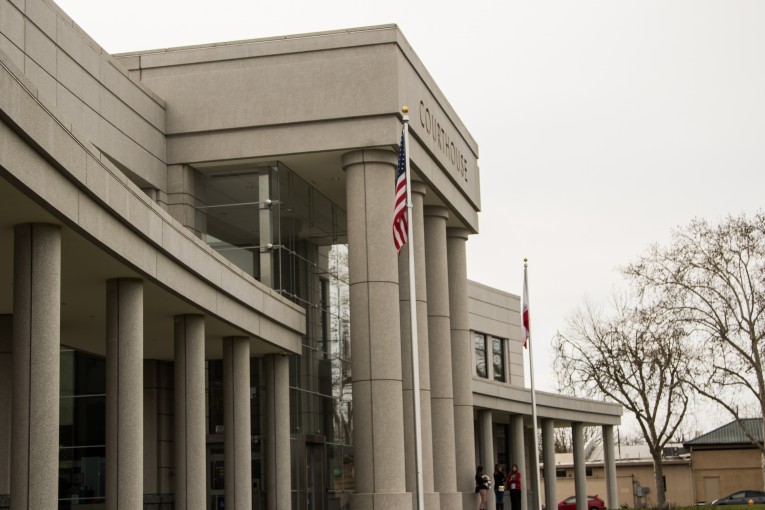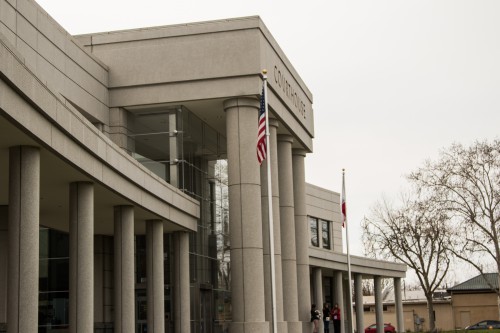
 By Lloyd Billingsley
By Lloyd Billingsley
Vanguard readers are right that the court system needs more transparency. On that theme, my own experience can provide evidence.
As a crime writer, father and grandfather, I was interested in the case of Colleen Harris of Placerville, who gunned down her husband Bob Harris, a U.S. Forest Service veteran known as “Grandpa Big Bear.” Nearly thirty years earlier, Colleen killed her second husband, Jim Batten, in similar circumstances. I thought it best to start with the Batten murder trial, and that proved educational in ways I did not expect.
I knew that, in the current system, court transcripts are treated as the property of court reporters. Writers have to purchase them, and that can involve great expense. For example, the transcript of the recent Winkler trial in Placerville, (defendant found guilty of murdering his wife) would cost nearly $1800.
Sometimes writers need transcripts even if they are present during testimony, particularly in courtrooms, such as those of Yolo County, that do not allow recording or use of computers. And as I learned, the transcripts do not include the text of video materials shown in the courtroom, such as the interrogation of Daniel Marsh.
I was willing to foot the bill for the transcript of the 1986 Batten trial, but it had an existential problem. Since Colleen Batten was acquitted, California law allows the transcript to be tossed, and that was the fate of the material I sought. El Dorado County prosecutors even tracked down the original court reporter, but she had no copy. This dearth of information would prove significant in the Harris trial.
The defense wanted to invoke the defendant’s prior claim of memory loss, but with the transcript missing, they had to rely on testimony from a journalist who had covered the case for the Mountain Democrat. After so long, that testimony was in effect hearsay, and for both defense and prosecutors it fell far short of what the transcript would have yielded.
Freida Batten, Jim Batten’s first wife and a UC Davis graduate, was outraged that the transcripts were the property of court reporters, and that in cases of acquittal the transcript could be tossed. To recall what someone said in a courtroom thirty years ago, with lives in the balance, there is simply no substitute for the transcript.
Whatever the verdict, nobody should be able to have these transcripts tossed. They belong to the people, not to court reporters, already highly paid for their work. To put this in perspective, imagine the outcry if bailiffs owned the gallery seats and charged reporters and spectators for their use.
What happens in a public courtroom is the property of the people. Every trial should be video and audio recorded in downloadable form. We have the technology, and the message to legislators should be clear:
“What do we want?”
“More transparency in the justice system.”
“When do we want it?”
“Now.”
Lloyd Billingsley is the author of Killer Confession: Double Murder Dialogue in Davis, California and Shotgun Weddings, about the Placerville case. Exceptional Depravity, his first book on the Marsh trial, appeared in 2014, and this year he published Bill of Writes, a journalism collection.
i think you have this mostly right. the problem is that for a court reporter, they make half their money from fees from transcript – the vanguard published this a few years ago. it’s a cottage industry. the second problem is that while i fully support opening up the transcript process, other than a reporter like yourself and maybe an attorney like myself, who’s going to read thousands of pages of transcript. but it’s a start.
Audio and video would capture nuances that are unavailable form transcripts and should remain unedited. Storage is cheap enough,
Actually, your information is incorrect. Calif Govt Code 69955 governs the retention of court reporter notes.
Govt Code 69955. (e) Reporting notes produced under subdivision (b) may be destroyed upon the order of the court after 10 years from the taking of the notes in criminal proceedings and after five years from the taking of the notes in all other proceedings, unless the notes report proceedings in capital felony cases including the preliminary hearing. No reporting notes in a capital felony case proceeding shall be destroyed until such time as the Supreme Court on request by the court clerk authorizes the destruction.
3) Sample from Bill Gates’ deposition
Automated voice recognition is no long a joke. Many of us use Siri or Google Voice, and they are free to do our texting and emails, and if you have not noticed, they eventually catch on after you make a correction every now and then, the next time they hear the same names or weird spelling, they get it right.
Understand this, the art of the steno court reporter is waning. Kids don’t want to get into it anymore and 50% of us in the industry are retiring very soon.